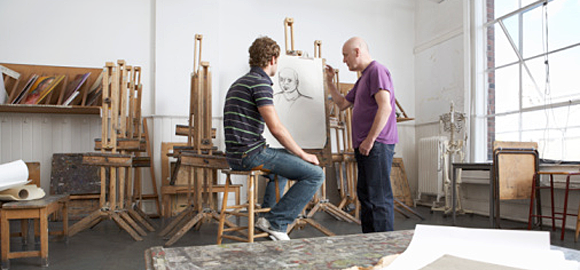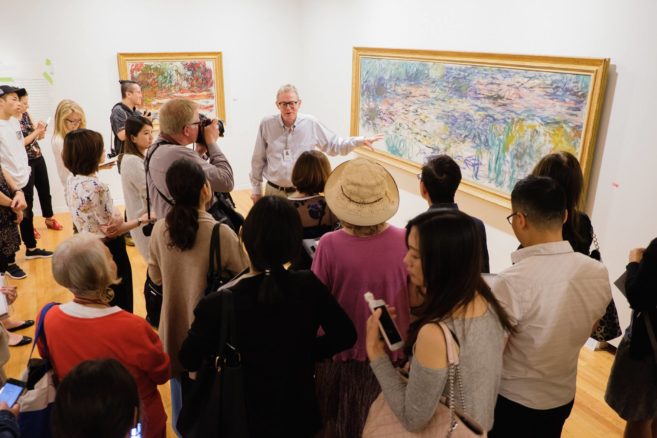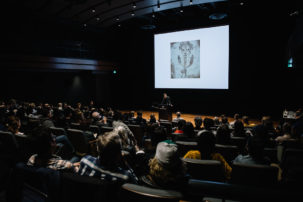If your art school education only takes place in the studio and the lecture hall, you’re missing out. Internships and mentorships can really add to your experience in the classroom. Interns complement their studies with real world experience, while mentees improve their knowledge by working one-on-one with a more established artist. Dawn Whitworth, manager of research and industry at Emily Carr University of Art + Design, offers the following info and advice on taking advantage of these opportunities.
Finding the Opportunity
- When looking for an internship, “Present with an abundance of enthusiasm and creativity. Research the company, and demonstrate that you know about it. Hard work as well as an ability to ‘fit’ into the company culture goes a long way.”
- Emily Carr integrates internships/co-ops into its degrees and connects students with artists, designers and media practitioners. If you’re looking for an opportunity on your own, however, “Networking is key, both in person and through social media.”
- “Students find mentors through co-ops, internships, working as research assistants, artists assistants, and through events that provide networking opportunities.”
How To Make It Work
As an intern:
- “Set realistic expectations for your internship in collaboration with your supervisor, and work harder than you ever imagined you could.” Be prepared to complete some less than glamorous tasks, watch and learn from your colleagues and don’t be afraid to ask questions. Show initiative by looking for opportunities and offering to help.
As a mentee:
- “Typically, the students meet with the mentor once a month, or once every couple of months, usually at the mentors studio or at a networking event. They discuss their work and the work of others. Often, students will assist their mentor with projects and generally become more involved with the business and production side of art, design and media.”
- “Students need to make a commitment of at least six months and be aware of the mentor’s professional boundaries, specifically time restraints and confidentiality issues. This is the students’ chance to present themselves in a positive light, a chance to make an impact and gain a life-long supporter.”
What You’ll Leave With
- “An internship not only provides students with the opportunity to work in a field that is related to their degree, but also it can provide research and networking opportunities that can’t be found in the classroom. A co-op/internship can also provide a door to a more permanent job and has kick-started many careers…. Students can expect to leave their internship with new skills, a new network, a reference and a big boost in self-confidence.”
- “A mentor can provide valuable insight into the roles and responsibilities within a sector. And, at the same time, a mentor can provide a real-life analysis of the ups and downs within that sector. Providing guidance and networking opportunities, mentors have also helped students find work and provided a reference.”

 moodboard/the Agency Collection/Getty Images
moodboard/the Agency Collection/Getty Images







